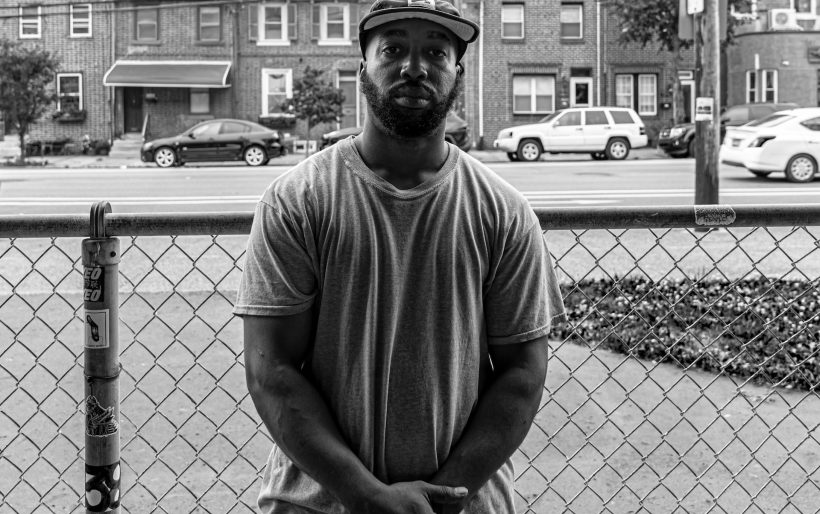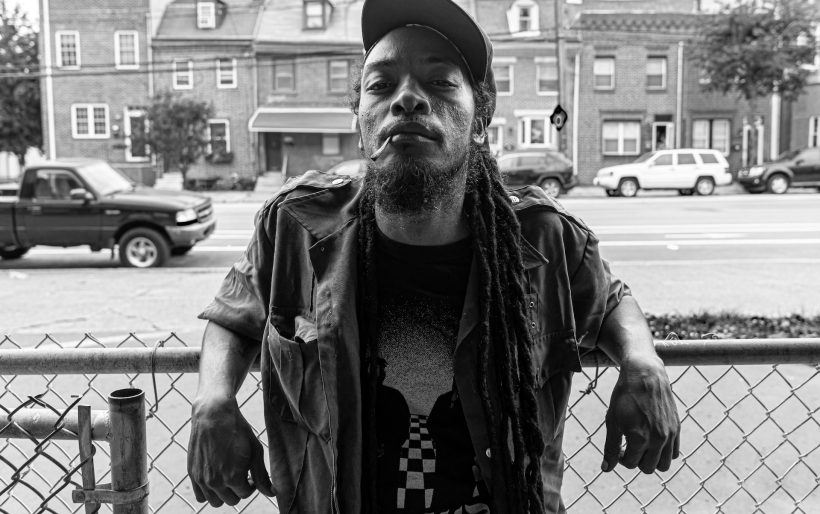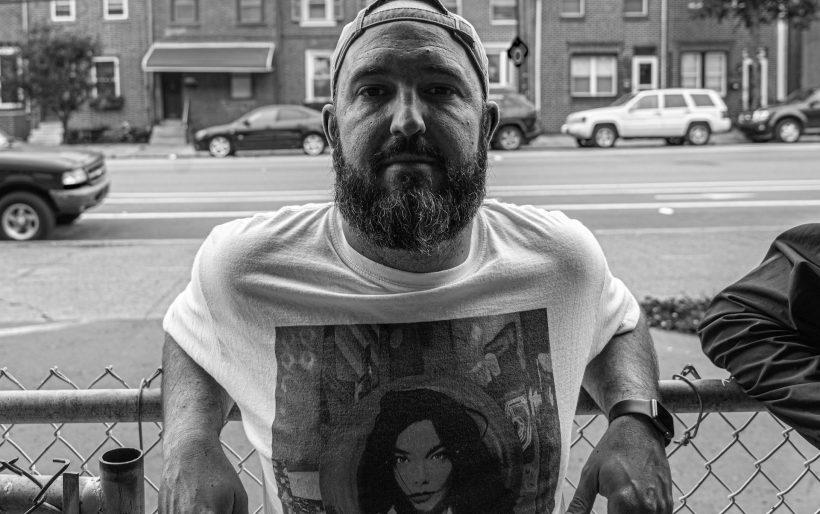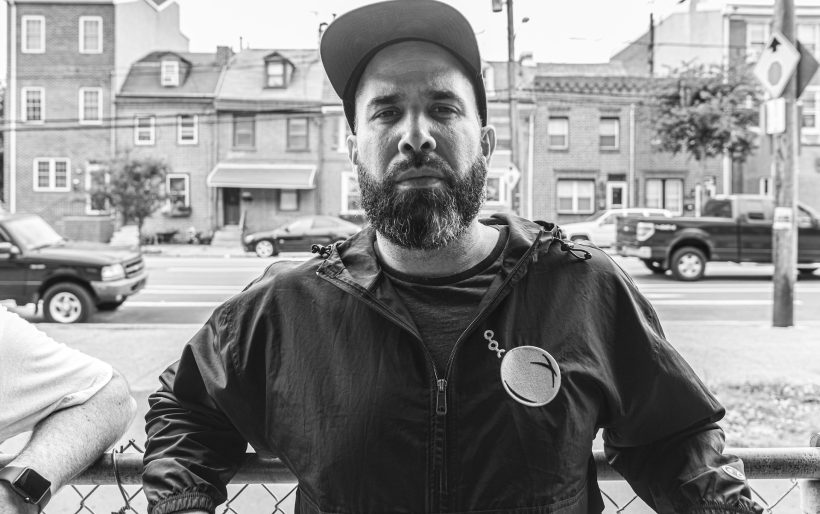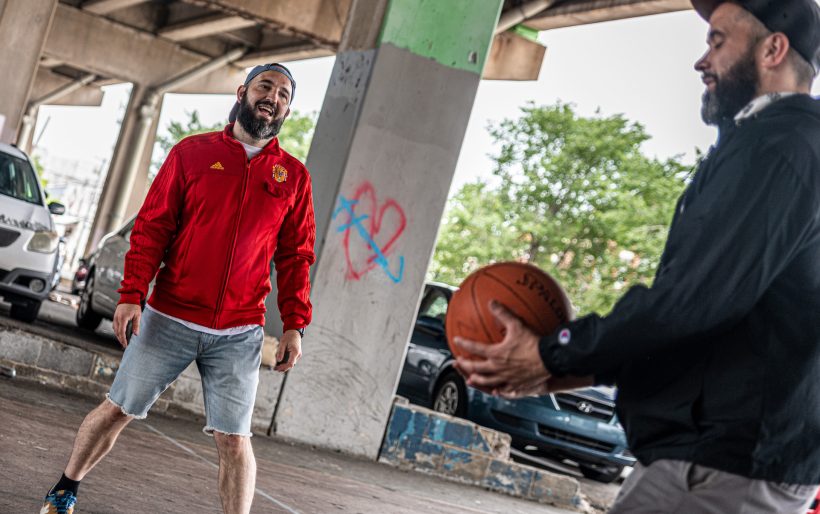MS: In the last decade there’s been a lot more people starting, and taking off, a little bit later, in their mid-30’s or later. KA, when people really started to know his name, was around his early 40’s. Is that where your fan base is at as well, or do you seem to be attracting a younger fanbase?
PR: I think both, but the older people tend to spend more money. So those are the financial supporters, which is what we need.
CC: But the younger people come out to the shows.
PR: It’s important to have like a 23, 22 year old comes to the show, who buys something, puts you on the Spotify playlist that all his friends listen to. That’s kind of equally important in some ways. A lot of people have kids and they don’t wanna go to a show or they can’t go to a show. They can’t make it like they used to and buy the t-shirt.
ZR: All of us we’re freaks. You know what I mean? Like, we’re music freaks, or sport freaks, or sneaker freaks, hat freaks. So we’ve been collectors our whole life – records, CDs, tapes, sneakers, all that shit.
But I feel like during COVID other people, and we saw it with our merch, they became collectors in general. Cause it’s like when you could stream every Disney movie ever, every fucking Peacock show, Paramount Plus. You don’t own shit. When you could own an Armand Hammer vinyl collection or Wrecking Crew collection, people now own our shit and take pictures, you know what I mean?
Separately, individually, all of our shit. Me and Castro have been comic book collectors for 30 years and we would, collect all the new X-Men books and all that. I feel like COVID gave people a chance to be like, “Yo! I can just sit here and watch Netflix all day and Stranger Things, but I don’t own stranger things. But I can own PremRocks catalog. I can own Small Pro’s catalog. I could own Castro’s catalog. It’s MY shit.” So we’ve done well. People, adults going back into collecting.
PR: It’s actually cool now to own vinyl. I work at a bar, so obviously I meet people from 21 up a lot of younger people, and the number one vinyl store in America’s Urban Outfitters.
SP: I was about to say urban Outfitters.
PR: These kids are buying vinyl. They place a premium on something that isn’t also in Urban Outfitters. There’s punk bleed over, there’s hardcore bleed over, and those people have always been collecting everything. I’m really flattered when I see like straight up punk kid, or like a kid in a Cradle of Filth shirt at my show. That just happened. Cradle of Filth, that I’m like “I don’t know the first thing about Cradle of Filth.” And he is like “you guys kick ass, I love your shit.” He’s like, “yeah, I love Hip-Hop. I like real Hip-Hop with real energy and emotion.”
MS: I think there’s a lot more crossover these days. You’ll see the number one Hip-Hop critic on Twitter might say their favorite album the year is this metal album.
PR: There’s that guy Lars, shout out to him, that does Viking’s Choice on NPR. He’s put some stuff on before and that dude is like a, I guess, a metalhead by nature, but his NPR playlist is insanely diverse and Hip-Hop and all that.
MS: Speaking of collectors, Small Pro, what did you pull from your catalog for this album? What was your artistic inspiration for this next record?
SP: So for this, I was really trying to find beats that everybody sounds great on. I’m always inspired by RZA in that regard because he makes beats that eight guys sound great on at the same time. He made it seem easy. That’s very hard to do. Making posse cut beats is very difficult to do so. Something I want to get better at and it’s something that, when we got together for this album, that was just my focus. Like the joint with Casual. That’s a posse cut beat, you know what I mean? I didn’t realize it at the time, but when I heard, I was like, “Oh! this makes sense.” This is a beat that, if you put it on, people are gonna start rapping.
MS: Zilla said your beats are “moody, but punchy.”
PR: So is he as a person. [group laughs]
MS: Were you going for a particular mood on this?
SP: Just something hard, you know, that was it,.
ZR: The good thing is that Smalls… I think you have like three or four beats, but Smalls has like the, the biggest meat on the bone. So he has a Casual joint, the Thirstin joint, some interludes. And then we all, like, shouts to Dropbox, Dropbox is an executive producer in this shit because all four of us know so many producers, and I make beats, Prem can make a fire ass beat. Castro was like “Yo, I know this cat Algernon Cornelius. He broke me off a bunch of beats and we were like, “Oh shit! I’ll rap on that.” Then it’s like Fresh Kils, Prems mans, was like “yo, I got something.” Then this cat Locust who works a lot with us. Everyone was just throwing shit in the ring like in Dropbox and we would pick.
Smalls was cool enough to be like, “yo, these beats are…” Smalls wasn’t wasn’t like RZA.
PR: Rza would not let that side.
ZR: RZA is not letting Fourth Disciple and True Master on 36 [Chambers]. But by the time we get the Wu Tang Forever… You get those dudes with the credits. So, I feel like all of us sharing the resources and throwing them in the pot and Small’s being cool with that, not being like “No goddammit. It’s gotta be a Small Pro Wrecking Crew record.
SP: Yeah, that’s coming though.
PR: Word. I’m ready.

